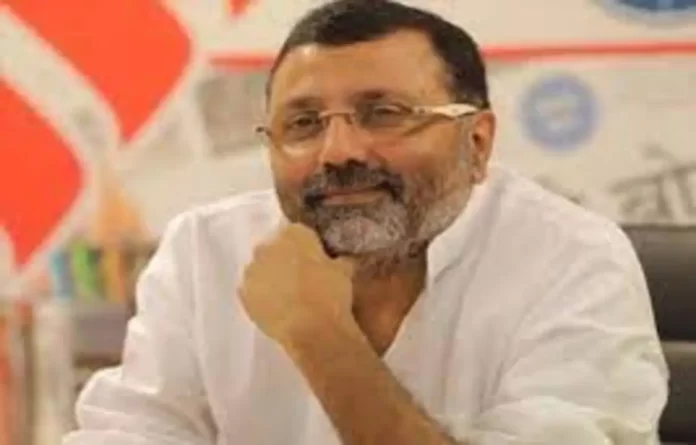The Jharkhand High Court recently discharged a criminal case against BJP MP Nishikant Dubey. The case relates to a demonstration held by him and other BJP leaders.
Justice Sanjay Kumar Dwivedi stated that a public representative is entitled to raise a legitimate public issue in public demonstrations. The court observed that the petitioner is not indulged in any act of violence. It further reasoned that protection is certainly available to a citizen under Article 19 of the Constitution of India for holding a peaceful demonstration.
The court noted that Article 19(1)(a) of the Constitution of India confers the right to freedom of speech to the citizens of this country and in view of this protection, a citizen is entitled to raise slogans and peaceful demonstration without using the offensive language. The Jharkhand High Court also added that Article 19(1)(b) of the Constitution confers the right to peaceful assembly and Article 19(1) (d) is for free movement through the territory.
BJP MP Nishikant Dubey had challenged a Sessions Court decision to uphold a Magistrate’s order to frame charges against several persons, including him, in the case related to a demonstration and the blocking of a road by BJP leaders in 2009. As per the prosecution, Dubey and his associates had blocked the road and caused a traffic jam.
Nishikant Dubey’s counsel told the High Court that no overt act was attributed to him and he himself had asked the demonstrators to leave the place. The State counsel opposed, stating that a prima facie case was made out against Dubey and that the Sessions Court had rightly rejected his petition for discharge.
The High Court also observed that had it been a case of there being any overt act on Dubey’s part, certainly the prosecution would have been maintained. It added that peaceful demonstrations are permitted under law.
Mentioning a charge filed against Dubey under Section 353 (assault or criminal force to deter public servant from discharge of his duty) of Indian Penal Code (IPC), the Court said there was no allegation to support such a charge. The Court mentioned that other provisions of IPC invoked were not attracted in the case.
Subsequently, the court concluded that it found Dubey’s case to be within the guided principles for discharge as it set aside the order of Sessions Court. Advocate Prashant Pallava and Advocate Parth Jalan represented Nishikant Dubey. Public Prosecutor Pankaj Kumar represented the State.


